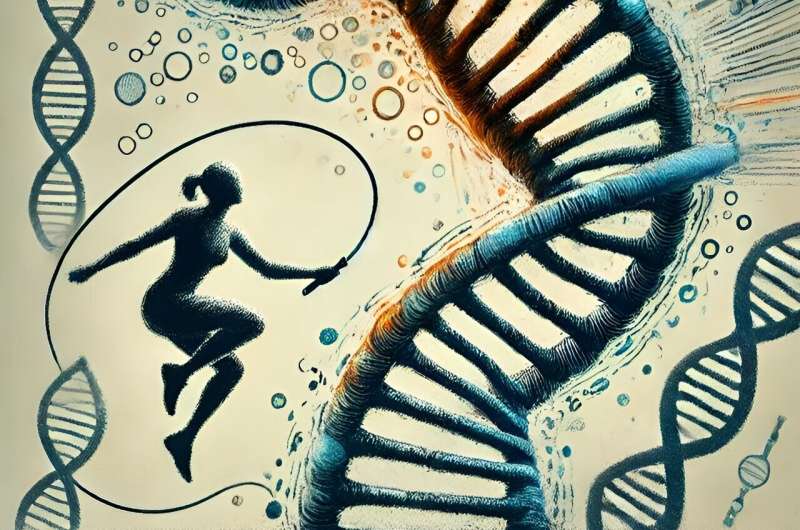This article has been reviewed according to Science X's editorial process and policies. Editors have highlighted the following attributes while ensuring the content's credibility:
fact-checked
peer-reviewed publication
proofread
Epigenetics study finds 'jumping genes' support immune cells in tissue

Researchers at the Leibniz Institute for Immunotherapy (LIT) describe a new type of regulation of immune cells by so-called "jumping genes."
The immune system defends the body against invading bacteria and viruses, as well as the spread of tumor cells. Unfortunately, the necessary immune response of the body causes unwanted damage that the body must heal.
After combating these dangers, the immune system needs to be dampened again, otherwise, persistent inflammation or even the development of an autoimmune disease can occur. The reduction of the immune response and the initiation of tissue healing is partly achieved by tissue-resident immune cells, in particular regulatory T cells. However, it has not yet been sufficiently researched how tissue-resident immune cells differ from immune cells in the blood and whether different immune cell types in the tissue undergo common adaptation programs.
Researchers at the LIT from the Division of Immunology have epigenetically examined the DNA of tissue-resident immune cells from different organs. Epigenetics describes how genes can be switched on and off like a light switch to ensure that cells develop differently. An important aspect of epigenetics is the regulation of so-called enhancers, accessible DNA segments that influence gene expression.
"Surprisingly, we found remarkably similar epigenetically controlled adaptation programs in different immune cell types in tissue. This finding suggests higher-level gene regulation mechanisms," explains Dr. Philipp Stüve, one of the first authors of the study.
"In the search for these higher-level gene regulation mechanisms, we came across an enrichment of so-called transposons or jumping genes in epigenetically accessible DNA regions," says Dr. Lisa Schmidleithner, one of the first authors of the study.
Jumping genes have been incorporated into the genome from viruses and have left thousands of copies at different locations in the genome during evolution through spontaneous integration in the genome ("jumping"). As a result, they now make up almost 50% of human DNA. For a long time, it was thought that these jumping genes had no function. Even though most jumping genes are no longer mobile today, recent studies have shown that they play an important role in gene regulation.
"Our data show an enrichment of certain families of jumping genes in tissue-resident immune cells in accessible enhancer regions, which could regulate the tissue adaptation of immune cells. In addition, these jumping genes have motifs for binding sites of so-called transcription factors, which are important for the function of enhancers," explains Dr. Malte Simon, one of the first authors of the study.
Thus, jumping genes represent a previously underestimated type of gene regulation that could explain the common adaptive programs that different immune cells undergo during development from blood to functional tissue-resident immune cells. Further research is now needed to better understand this new field of tissue immunology.
"A comprehensive understanding of the immune system in tissue is a prerequisite for tissue-specific treatment approaches in order to treat inflammation or tumor diseases with the help of genetically improved immune cells," explains Professor Markus Feuerer, the lead author of the study.
The research is published in the journal Immunity.
More information: Malte Simon et al, Single-cell chromatin accessibility and transposable element landscapes reveal shared features of tissue-residing immune cells, Immunity (2024). DOI: 10.1016/j.immuni.2024.06.015




















